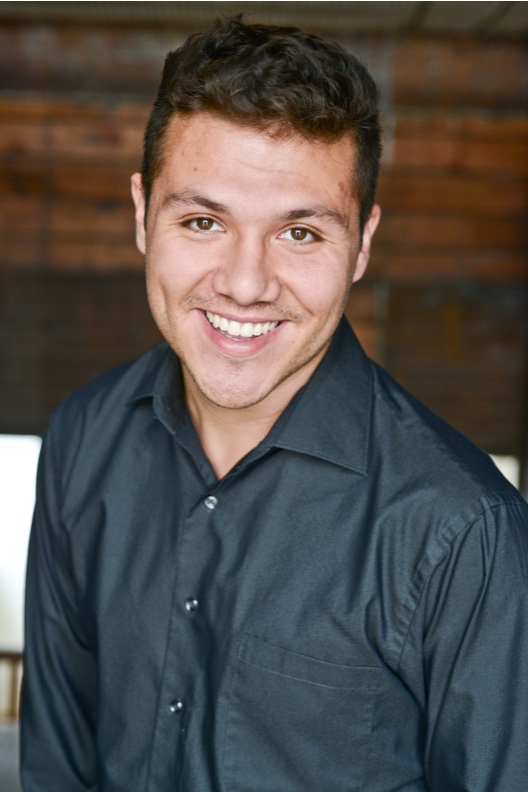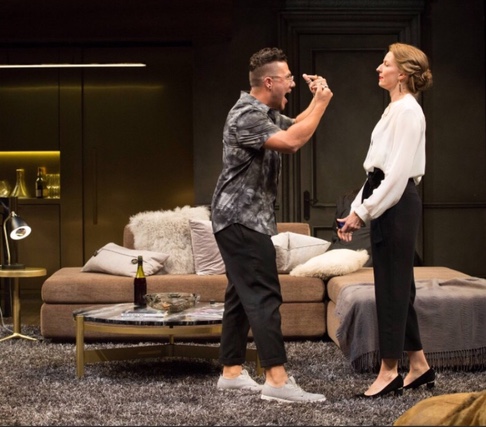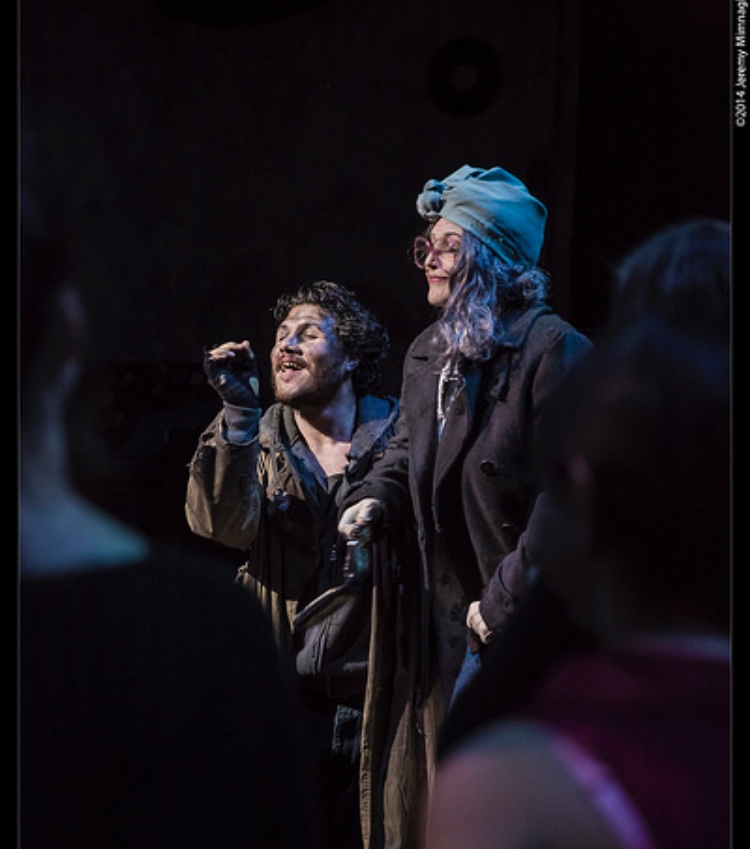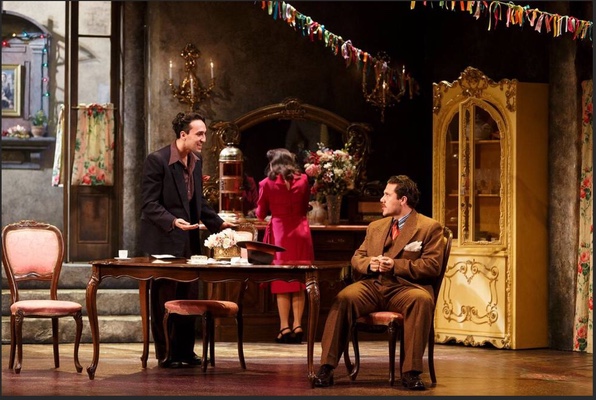4 Questions: Emilio Vieira
This article is part of our series 50 Years of Disruption, in celebration of the Department of Theatre’s 50th Anniversary. In it, we’ll ask each participant four questions about themselves and their time at York.
1. Who are you?

My name is Emilio Vieira (BFA Acting 2014) and I am a disruptor. Not to be confused with a sh*t disturber, which I suppose I have also been. During my time at York University, I was scolded for frequent rides on the infamous rocking horse, until it was hidden away – that was being a sh*t disturber. I also spent the time becoming a critical thinker, challenging the “way things have always been” and honing my craft. I used to say that I was lucky to be a working actor; that I was lucky to have had very few periods of unemployment since graduating university, but that was until I encountered this quote by Peter Dinklage, “ I hate that word – ‘lucky.’ It cheapens a lot of hard work. Saying I was lucky negates the hard work I put in and spits on that guy who’s freezing his ass off back in Brooklyn. So I won’t say I’m lucky. I’m fortunate enough to find or attract very talented people. For some reason I found them, and they found me.” Having developed a passion for Shakespeare’s works in university, I was fortunate enough to find opportunities to do Shakespeare in Toronto with companies like Shakespeare in Action, Canadian Stage and The Guild Festival Theatre. While bartending on the side, I also did a fair bit of auditioning for film and television which was not kind to me – and then I got the call that I was accepted into the Birmingham Conservatory for Classical Theatre at the Stratford Festival. That was in 2015. Since then, I’ve trained under the direction of Martha Henry and Stephen Ouimette, participated in master classes they assembled for the program with some of the world’s best teachers, and been a part of three seasons at the Festival. It has been an incredible experience not only to work on Shakespeare but to have also been a part of the creation of new work, and to learn and share with a very talented group of artists. You can catch me in Tartuffe at Canadian Stage and Towards Youth at The Crow’s Theatre in early 2019.

2. What was your favourite moment during your time in the Theatre Department, and why?
It’s so hard to pick a favourite moment. Those were four of the most formative years of my life, and every now and again memories from my time at York will drop back into my mind and provide insight, laughter, an a-ha moment or regret. If I had to pick one moment to crown them all it would be opening night of our final show of 2014: ROAD by Jim Cartwright. Our director, the inimitable Mark Wilson, had cast me as Scullery, a man living on the street who acts as a kind of narrator or rather guide through the world of the play. On top of Scullery’s scripted moments, Mark encouraged me to have as much fun as possible with the audience; to erase entirely the line between where the audience ends and the action begins. These improvised beats were the toughest to rehearse, mostly because we didn’t have an audience in rehearsal for me to play off. On top of all that, we were doing Manchester accents. After weeks of feeling like a failure, certain I was never meant to be an actor, something changed. Opening night, as the house opened and people started to flood the space, my increasing nerves gave way to a mischievous sense of play and that night I felt that all of the work Mark had put me through wasn’t to help a flailing actor create something satisfactory for the play, but was to stretch, hone and welcome that sense of play into my process. I have been ever thankful to him since that day for kindling that bright flame, and have tasked myself with the responsibility of keeping it alive.

3. What comment, quotation, statement, or action that a professor—or classmate—offered had the greatest impact on you?
What first comes to mind, as a moment of great impact, is during my first year, first day in Peter McKinnon’s class: I was 18 years old, fresh out of high school and super aware that I was likely one of the youngest in the class of about 140 students. I sat off to one side, up against the wall about halfway up the room. I had twisted my ankle the week before so I wasn’t able to frosh as much as the others and the din of new friendships roared behind me as a taunting reminder I didn’t know anyone yet. Peter said two things that day that changed everything for me. First he said, “Early is on time. On time is late. And late is fired.” That sent a chuckle through the room, until his perfectly constructed and rehearsed straight face sent a hush up the seats. Then he said that he would treat us as working professionals from this moment onwards and the best part was he meant it. He showed me a level of respect that was rarely given in high school and it engendered in me a respect for myself as a professional artist. We continue to keep in touch. It was years later that he also gave me this nugget, “the longer you do it, the more other people give up; so don’t give up and you’ll keep doing it.”
4. Is there a way you incorporate a particular aspect of your theatre training in your current work?
Some of the most practical training I received at York was in Eric Armstrong’s voice classes. I still carry sheets of his warm-ups and tools to break down the text with me wherever I work. His classes on the International Phonetic Alphabet were particularly interesting for a accent nerd like me, and continue to make for good cheat sheet notes when auditioning in a dialect or scribbling down a quick pronunciation note for an obscure word or name. He also taught me how to use the Oxford English Dictionary and Schmidt’s Shakespeare Lexicons, as a treasure hunter uses a map, to navigate my way through Shakespeare, break down the thoughts and make sure I understand the total meaning of the line so the audience can follow as well. He really helped me develop an arsenal of tactics and approaches to better understanding the text, which has always been of use to me since then, especially as I continue to work in classical theatre.

